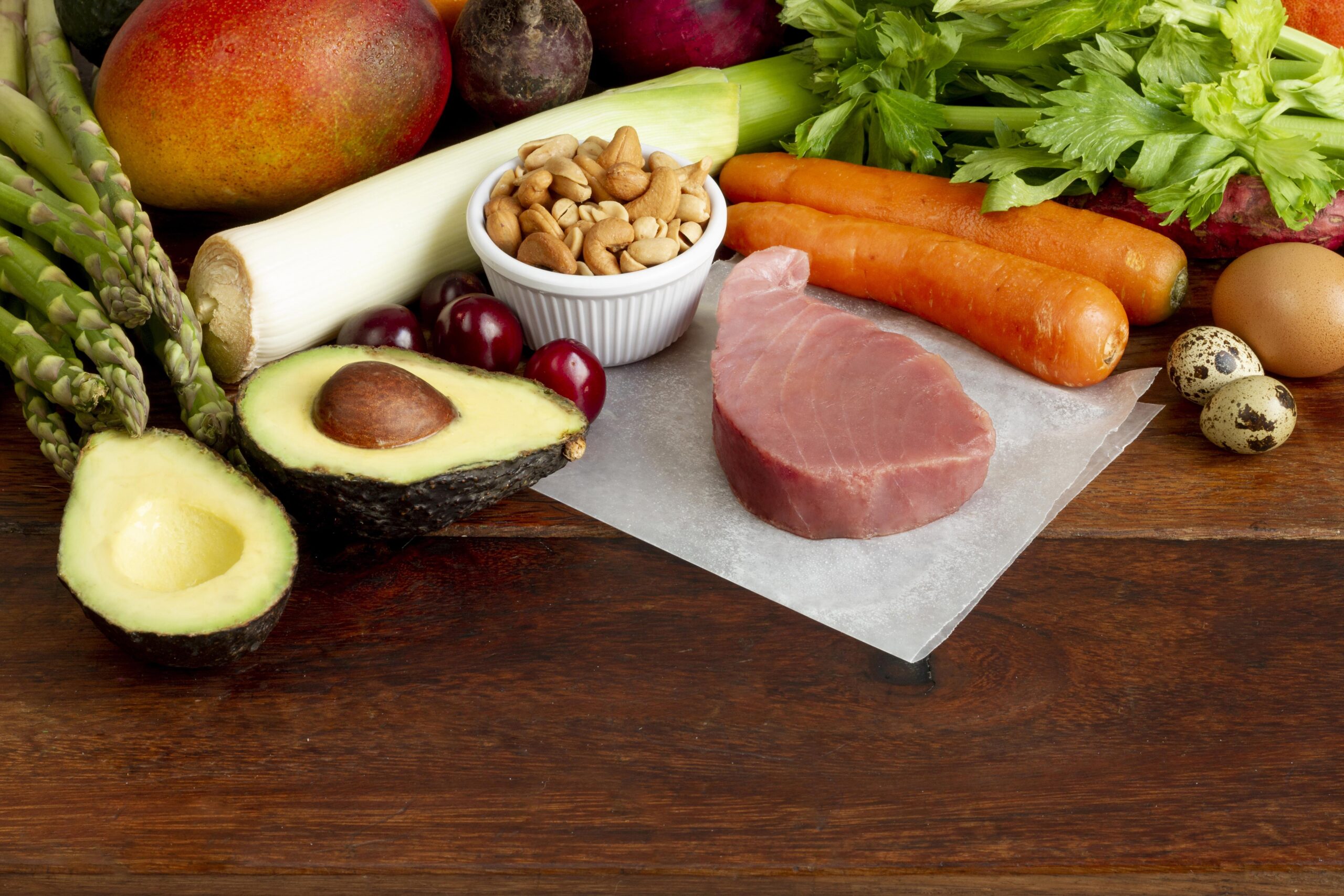
For years, dietary fat was seen as the enemy, widely blamed for heart disease and weight gain. But current research has shifted that view, revealing that not all fats are created equal. Some high-fat foods can be incredibly nutritious and beneficial when eaten in moderation. Healthy fats not only enhance flavor and promote satiety but also support hormone production, nutrient absorption, and brain function.
While it’s still important to limit saturated fats, especially those from processed or red meats, some fat-rich foods, such as those from dairy or plants, may offer protective effects. Compared to their low-fat or fat-free versions, full-fat foods are often less processed and lower in added sugars or refined carbs. In this article, we’ll explore 9 high-fat foods that can be a smart addition to a balanced diet.
Creamy, flavorful, and nutrient-dense, avocados are one of the healthiest high-fat foods you can eat. They are rich in heart-healthy monounsaturated fats, particularly oleic acid, which has been linked to reduced levels of LDL (bad) cholesterol.
In addition to healthy fats, avocados are a great source of fiber, helping to support digestion and keep you feeling full longer. They also provide essential vitamins like E and K, which contribute to skin health, blood clotting, and antioxidant protection.
Nuts like almonds, walnuts, pistachios, and cashews are compact powerhouses of nutrition. They are loaded with heart-healthy fats—especially monounsaturated and polyunsaturated fats, including omega-3 fatty acids.
These fats help lower LDL (bad) cholesterol, support healthy blood vessels, and reduce the risk of cardiovascular disease. Nuts also offer a solid dose of plant-based protein, fiber, and essential nutrients such as vitamin E, magnesium, and selenium, making them a smart and satisfying snack.
Small but mighty, seeds like chia, flax, and hemp are rich sources of healthy fats, especially alpha-linolenic acid (ALA), a plant-based omega-3 fatty acid known for its anti-inflammatory and heart-protective benefits.
They also deliver protein, fiber, and an impressive array of vitamins and minerals. Their mild flavor and versatility make them easy to incorporate into daily meals, whether sprinkled on yogurt, blended into smoothies, or baked into bread and snacks.
A cornerstone of the Mediterranean diet, olive oil isn’t just a flavor enhancer; it’s a powerhouse of health benefits. Packed with monounsaturated fats and antioxidants like oleocanthal, this golden oil helps fight inflammation and protect the heart.
Here’s why it deserves a place in your kitchen:
How to use it: Drizzle over fresh salads, brush onto grilled vegetables, or finish warm dishes with a splash of extra virgin olive oil for a healthy flavor boost.
Fishlike salmon, mackerel, and sardines don’t just taste great—they’re rich in two powerful omega-3 fatty acids: EPA (eicosapentaenoic acid) and DHA (docosahexaenoic acid). These essential fats play a crucial role in reducing inflammation, supporting brain health, and improving heart function by lowering triglyceride levels and enhancing blood vessel performance.
Regular consumption is linked to:
Tip: Add fatty fish to your weekly menu at least twice to enjoy both their rich flavor and their wide-ranging health benefits.
Dark chocolate isn’t just a guilty pleasure—it’s a surprisingly powerful health food when chosen wisely. Opt for varieties with at least 70% cocoa to get the full benefits of its healthy fats and antioxidant compounds known as flavonoids. These antioxidants help fight inflammation, improve circulation, and reduce oxidative stress, a key contributor to heart disease.
Why it’s worth savoring:
Enjoy it mindfully: A small square or two of quality dark chocolate can satisfy your sweet tooth and support your wellness.
Tofu may be known for its versatility in the kitchen, but it also deserves credit for its nutritional profile. Made from soybeans, tofu is a complete plant-based protein and a solid source of healthy fats, especially monounsaturated and polyunsaturated fats. A 100-gram serving of firm tofu offers around 4 grams of fat and nearly 11 grams of protein, making it a great meat alternative for vegetarians and health-conscious eaters alike.
Why tofu deserves a spot on your plate:
Serving tip: Stir-fry, grill, or blend it into smoothies and soups for a protein-rich boost.
Full-fat natural yogurt does more than please your palate—it supports your gut, heart, and possibly even your waistline. Rich in probiotics, it helps maintain a healthy digestive system and may reduce the risk of cardiovascular disease. Although debate continues over full-fat versus low-fat dairy, emerging research suggests that full-fat yogurt can be part of a balanced, healthy diet, contrary to older guidelines that favored fat-reduced options.
Here’s what makes it stand out:
Enjoy it wisely: Choose plain, unsweetened full-fat yogurt and pair it with fruit, nuts, or seeds for a nourishing snack or breakfast.
Eggs have cracked their way back into the spotlight—and rightfully so. Once feared for their cholesterol-rich yolks, recent research shows that whole eggs don’t hurt blood cholesterol for most people. Instead, they offer a powerful mix of nutrients in one compact shell.
What makes eggs a nutritional all-star?
How to enjoy them: Scrambled, poached, boiled, or baked eggs are a quick, affordable, and versatile addition to any meal, especially breakfast.
Full-fat dairy products like cheese, whole milk, and natural yogurt bring more than just flavor to your meals; they offer a nourishing blend of healthy fats, protein, and calcium. Despite past concerns, growing research suggests that full-fat dairy can be part of a balanced diet and may even contribute to better appetite control and metabolic health.
Why it’s worth including:
Ways to enjoy it: Choose plain, full-fat yogurt with fresh fruit and seeds, savor a slice of cheese with whole-grain crackers, or pour a glass of whole milk with meals for a wholesome boost.
Healthy fats are essential, not harmful. When chosen wisely, high-fat foods like avocados, nuts, fish, and full-fat dairy can support heart health, brain function, and overall well-being. Include them in moderation as part of a balanced diet to enjoy their full benefits.